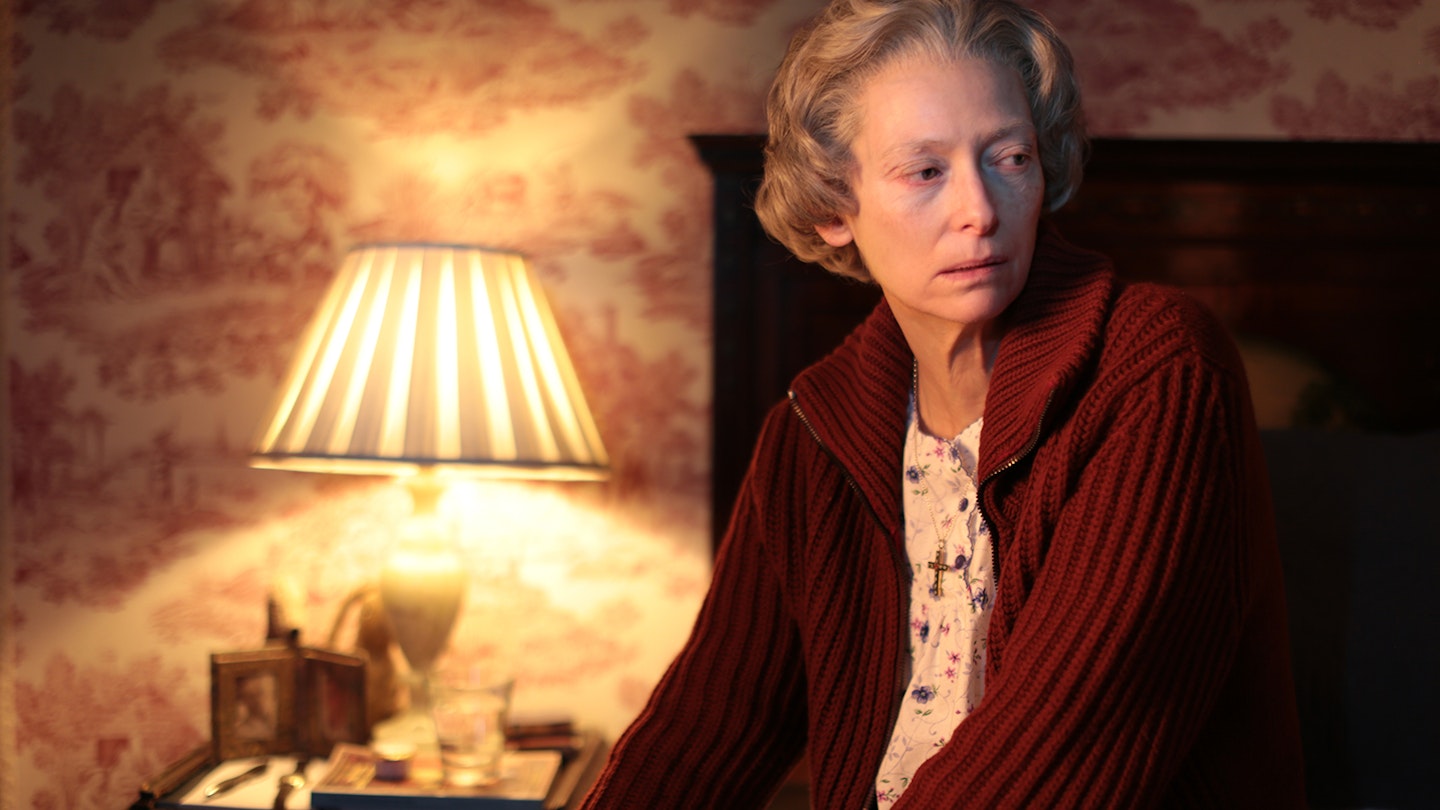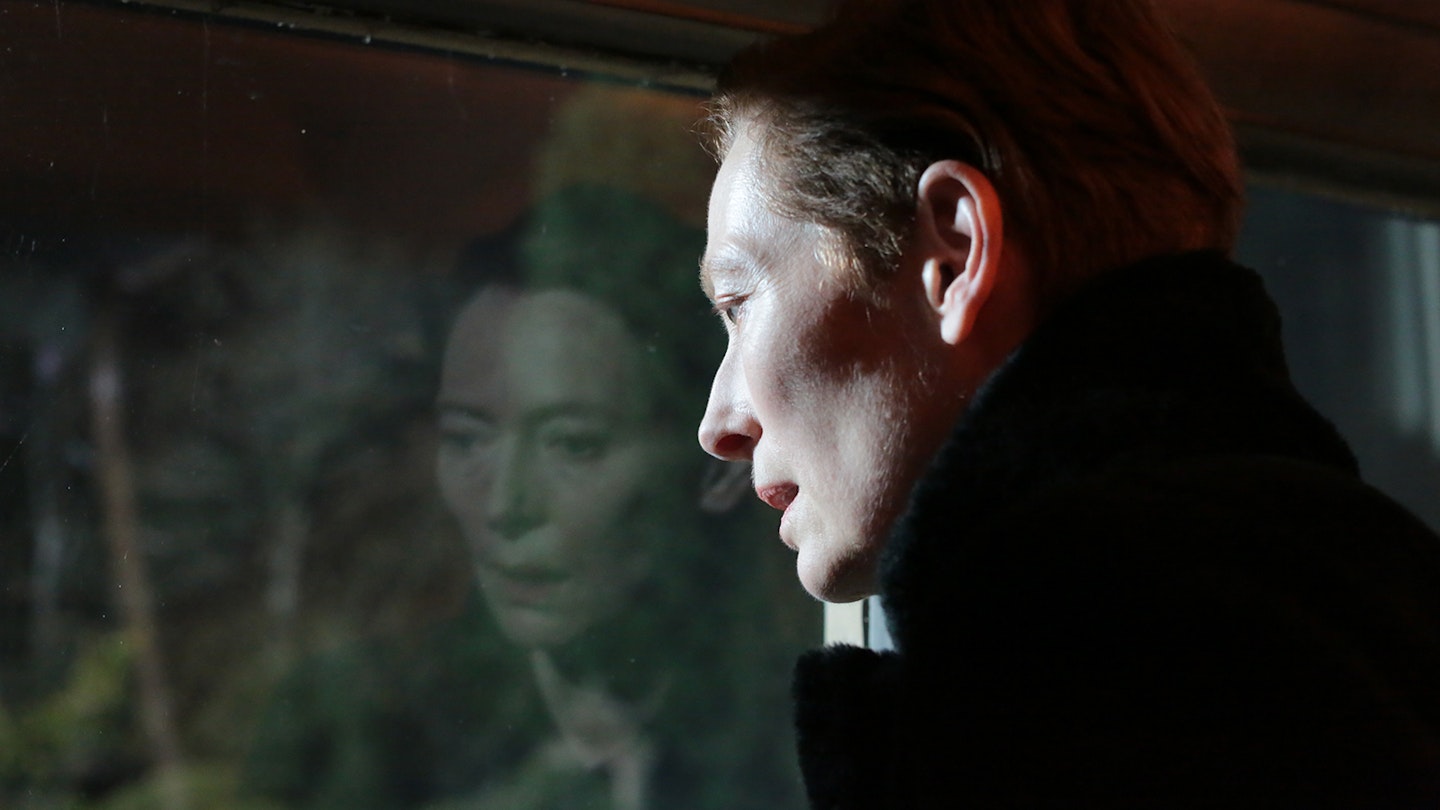For some, going on an isolated holiday with their elderly mother is a literal nightmare. For others, becoming their mother is even worse. Unluckily for the filmmaker protagonist in The Eternal Daughter, each of these scenarios emerges: mother Rosalind and daughter Julie unwittingly rake up painful memories during a trip to a spooky rural hotel, Rosalind’s former family home; not only that, but Tilda Swinton plays them both, in dual roles.

This is the ghoulish set-up of Joanna Hogg’s latest film, another quasi-autobiographical story which follows characters from The Souvenir and The Souvenir Part II decades on, forming something of a JCU (Julie Cinematic Universe). Here, Hogg has created a haunted-house film — albeit the most politely strained and British haunted-house film ever — that quite literally opens on an eerily mist-laden country road, with a cabbie telling a ghost story.
With a self-aware wink, Hogg invokes an array of horror-filmmaking stereotypes.
Rosalind and Julie find that this is not the warm, welcoming locale it once was; where it should be cosy and nostalgic, it’s actually cold and aloof, mirroring the very nature of their relationship and how it’s changed. What’s worse, the surly receptionist (scene-stealing newcomer Carly-Sophia Davies) is a far cry from the hospitality Julie was expecting. A constant whistle of wind acts as the white noise in her unsettled mind, with laboured conversations sending half-truths and long-fossilised pain rattling through draughty rooms like a poltergeist.
This pint-sized, lo-fi tale is a feast of atmospheric delights, however. With a self-aware wink, Hogg invokes an array of horror-filmmaking stereotypes to create an intriguingly kitsch atmosphere, including split diopter shots, Dutch angles, crash zooms and a conspicuously creepy score. The most obviously scary thing that happens is when Louis the dog briefly goes missing (a handsome spaniel, second-billed, delightful).
But what’s truly ghoulish is not any real supernatural element — it’s the way in which Julie exploits this supposedly selfless time with her mother for her own benefit. Their trip is a bit of a ruse: she’s secretly recording their exchanges without Rosalind’s knowledge, mining her mother for content for an upcoming screenplay. It is plainly Hogg herself grappling with the deeply personal nature of her films, as well as the psychological toll she bears by spilling out her secrets onto celluloid for the world to see. This vulnerable and painful exercise for Julie/Joanna is perfectly literalised in the one moment where the two Tildas finally share the screen together, cracking open the film’s secret thesis in a moment of heartbreaking clarity.
